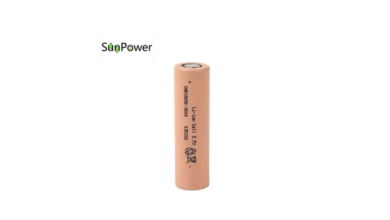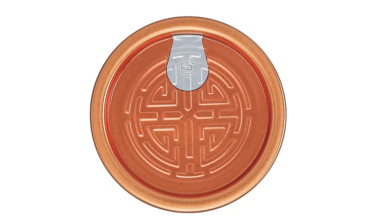A Woman’s Guide to Healthy Intimate Care Habits

Gone are the days of secrecy and silence. We believe that every woman deserves to be well-informed and equipped with the knowledge to make informed choices about her intimate health.
In this guide, we will discuss the tips for feminine hygiene, sharing valuable insights and expert tips that will leave you feeling rejuvenated and confident. But beware, we will not shy away from exposing the harmful products that can disrupt your delicate ecosystem.
Our aim is to protect you from their pitfalls and guide you toward natural and safe alternatives that will truly nourish and care for your intimate areas. So, get ready to embrace a world of self-care, self-love, and empowerment.
The Importance of Intimate Care
Maintaining healthy intimate care habits is crucial for women’s overall well-being. Proper hygiene practices help prevent infections, discomfort, and promote a balanced vaginal environment. When you prioritize intimate care, you can support their reproductive health and enhance their quality of life.
A key aspect of healthy intimate care is regular cleansing using gentle, pH-balanced products. Refrain from using harsh soaps, fragrances, and douching, as they have the potential to disturb the natural pH balance of the vagina, resulting in irritation and increased vulnerability to infections. You can also opt for mild cleansers specifically formulated for intimate use, and remember to wash the area from front to back to prevent the spread of bacteria.
Also, you should choose breathable underwear made from natural, moisture-wicking fabrics. The use of tight, synthetic fabrics can trap moisture, creating an environment conducive to the growth of bacteria and fungi. Opting for breathable fabrics like cotton can help you minimize the risk of developing uncomfortable conditions such as yeast infections or bacterial vaginosis.
As per the National Library of Medicine, a staggering 75% of women globally have experienced vaginitis at least once during their lifetime. This statistic underscores the significance of prioritizing intimate care for women’s health, as maintaining proper hygiene and adopting healthy habits can play a key role in preventing such conditions.
When you follow a regular intimate care routine and are mindful of hygiene practices, you can minimize the risk of developing vaginitis and other related infections, ultimately promoting your overall well-being.
Essential Tips for Maintaining Intimate Hygiene
Proper intimate hygiene is crucial for maintaining women’s health and preventing infections or discomfort. Below are a few valuable guidelines to assist you in upholding healthy intimate care practices:
- Choose gentle, pH-balanced cleansers specifically designed for intimate use to preserve the natural vaginal pH level.
- Avoid using harsh soaps, fragrances, or douching, as they can disrupt the delicate balance of the vagina.
- Change out damp or sweaty clothes promptly, including swimsuits and workout gear, to maintain freshness and dryness.
- Use a clean towel after washing and avoid sharing towels or personal hygiene items to prevent the spread of infections.
- Avoid using scented sanitary products and opt for unscented, hypoallergenic options to minimize irritation.
Research findings indicate that a significant percentage, approximately 95%, of women in specific populations have been observed to incorporate diverse feminine hygiene products or practices within or around their genital region. These products include douches, wipes, sprays, washes, and powders, and they have contributed to the rapid expansion of a flourishing industry worth $2 billion in the United States alone.
In light of these statistics, it becomes even more important to provide tips for maintaining proper intimate hygiene. When you follow the above-mentioned tips, it becomes easier for you to ensure that your intimate care practices are effective and promote overall well-being.
Avoiding Harmful Products to Protect Your Intimate Areas
Protecting your intimate areas involves being mindful of the products you use and avoiding harmful substances. Many feminine hygiene products on the market contain harsh chemicals and fragrances that can disrupt the natural balance of your intimate area.
You need to exercise caution when it comes to certain products, such as talc products and baby powder, particularly for use in intimate areas. Despite being a common practice in many parts of the world, the potential health consequences associated with these products are often unknown to women. For instance, studies have revealed that the use of Johnson and Johnson talc products can increase the risk of developing ovarian cancer and mesothelioma among women.
Consequently, individuals who have been affected by the potential health risks have chosen to take legal action by filing talcum powder lawsuits against the manufacturer. The intention behind these lawsuits is to hold the company accountable for its products and seek appropriate legal compensation for the damages caused.
In April 2023, in response to the mounting pressure from these lawsuits, Johnson and Johnson offered a significant settlement amount of $8.9 billion to resolve the claims made by plaintiffs in their talcum powder lawsuits, as reported by TorHoerman Law. This development highlights the importance of informed consumer choices, where individuals must educate themselves about potential risks and opt for safer alternatives to protect their intimate areas and overall well-being.
Natural Alternatives for Intimate Care Products
When it comes to intimate care, choosing natural and safe alternatives can help promote optimal vaginal health. Instead of relying on chemical-laden products, consider these gentle options for a healthier intimate care routine.
Coconut Oil
Coconut oil is a versatile option that can be used as a moisturizer for the external genital area. Its natural anti-inflammatory properties help soothe irritation and provide gentle hydration without disrupting the vagina’s pH balance. For moisturizing advantages, just use a small quantity of coconut oil on the outer region.
Aloe Vera Gel
The gel extracted from the aloe vera plant is widely recognized for its calming and therapeutic qualities. It can be applied to ease vaginal discomfort, offering relief from irritation and dryness. Ensure you choose a pure, natural form of aloe vera gel and apply it externally as needed.
Unscented and Ph-Balanced Cleansers
Choose fragrance-free, pH-balanced cleansers specially designed for intimate hygiene. These gentle cleansers help maintain the natural balance of the vagina without causing irritation or disrupting the delicate flora.
Probiotic Supplements
Probiotics are beneficial bacteria that can help support vaginal health. Taking oral probiotic supplements or using vaginal probiotic suppositories can help maintain a balanced microbial environment, reducing the risk of infections and supporting overall vaginal well-being.
According to Persistence Market Research, the Global Organic Feminine Care Market is estimated to be worth $2.5 billion in 2023 which would likely reach a valuation of $4.6 billion by 2033. The massively growing industry indicates how the inclination toward using organic and natural products has increased among women, especially when it comes to maintaining their intimate health.
In line with this market trend, it is evident that more and more women are gravitating towards natural and safe alternatives for their intimate care needs. The growing awareness regarding the potential risks associated with conventional products has led to a shift towards organic feminine care options.
Summing Up
Taking care of your intimate health as a woman is essential for overall well-being and confidence. When you follow simple yet effective habits as mentioned in this article, you can maintain a healthy and comfortable intimate area.
Don’t forget that self-care is not only a luxury but a necessity, and investing in your intimate health will contribute to a happier and more confident you.





